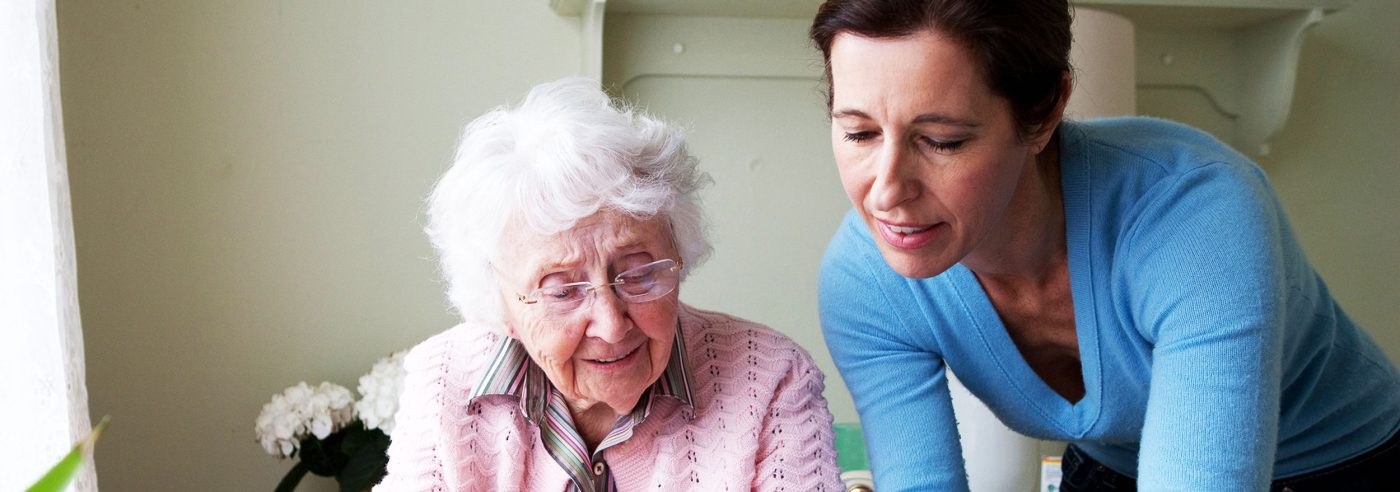Understanding the Difference between CHSP vs HCP in Home Care
Home Care |

As you get older, exploring all the available aged care and home care opportunities becomes essential to help maintain your independence and quality of life.
In Australia, the Commonwealth Home Support Program (CHSP) and home care packages (HCP) are two popular government-funded programs that offer support and services to older Australians who wish to access health support in their own homes.
If you or a loved one is hoping to learn more about the available aged care and home care opportunities and support services, it’s important to first understand the difference between CHSP and HCP. In this post, we will delve into the key aspects of each of these initiatives, and shed light on their similarities and differences, as well as the opportunities they can offer you today.
Difference between CHSP and HCP
The Commonwealth Home Support Program (CHSP) and home care packages (HCP) are initiatives by the Australian government that aim to provide support to older individuals who wish to access care at home. These programs offer a range of services designed to assist with everyday tasks and address the specific needs of each individual.
Home care, at its core, refers to a range of services and support provided to individuals in their own homes to help them maintain their independence and quality of life. It encompasses various aspects of daily living, such as personal care, household tasks, transportation, social support, and health-related services.
CHSP serves as an entry-level program that provides basic care and support services. It is essentially intended for individuals with simple care needs who require minimal assistance to continue living independently.
The services offered under CHSP include domestic assistance, social support, transport, meals, and personal care. The program focuses on helping individuals with tasks they may find challenging as they age, such as cleaning, shopping, and meal preparation.
On the other hand, the HCP program is designed to cater to individuals with more complex needs. These packages offer a higher level of care and support services tailored to the specific requirements of the recipient.
Through HCP, you or a loved one can have access to a wide range of services, including allied health services, nursing services, and assistance with activities of daily living. The program aims to provide comprehensive support for people with more significant care needs, enabling you or a loved one to continue living at home while receiving the necessary assistance.
To read more about home care packages and how you can access this form of support, read our guide on how to access a home care package.
Assessment process and eligibility criteria
To access services under CHSP or HCP, you must first undergo an assessment process conducted by an Aged Care Assessment Team (ACAT) or a Regional Assessment Service (RAS). This face-to-face assessment helps determine the level of care you require and the most suitable program for your specific needs and preferences.
For CHSP, the assessment is relatively straightforward, focusing on identifying your basic care needs. The aim is to understand the level of support required to help you maintain your independence and perform everyday tasks. The assessment may involve discussions about the your health, mobility, personal care needs, and support network.
On the other hand, HCP assessments are more comprehensive, taking into account not only your care needs but also your goals, preferences, and aspirations. This holistic assessment approach ensures that the care provided is personalised and tailored to your specific circumstances and requirements.
The assessment may cover aspects such as medical conditions, medication management, mobility, mental health, social connections, and overall wellbeing.
Eligibility criteria for both programs are based on age and residency in Australia. In general, individuals must be 65 years or older to be eligible for CHSP, while the eligibility age for HCP is 50 years or older. Residency requirements involve being an Australian citizen, permanent resident, or holder of specific visas. Financial assessments are also conducted to determine if individuals need to contribute to the cost of their care.
Want to read more about what happens during an aged care assessment, as well as what you can do to prepare? If so, check out our comprehensive walkthrough of what happens during an aged care assessment.
Funding and costs
One of the key differences between CHSP and HCP lies in the funding and costs associated with each program.
CHSP services are subsidised by the Australian government, and while some services may have a small basic daily fee, most services are provided at no cost to the individual. This means that individuals can access essential support services without significant financial burden.
In contrast, HCP recipients receive a government subsidy, but they are also required to contribute to the cost of their care. The contribution is determined based on the individual’s income and assets and is referred to as the income-tested care fee.
The level of HCP funding varies across four levels, with higher levels providing more funding for additional services. The income-tested care fee is calculated using a formula that takes into account the individual’s assessable income, assets, and a basic fee.
For more information on income tested fees in home care, read this article where we demystify income-tested fees.
Service provision and flexibility
Another important distinction between CHSP and HCP is the range of services and flexibility they offer. CHSP primarily focuses on providing a limited number of support services, generally offering one or two services to meet the basic needs of the individual.
The goal is to maintain independence and support individuals in completing everyday tasks. For instance, CHSP may assist you with house cleaning, gardening, transportation to medical appointments, or the provision of meals.
HCP, on the other hand, allows for a more comprehensive and flexible approach to service provision. Recipients can choose from a broader range of care services and tailor their package to suit their individual needs.
Whether it’s assistance with personal care, nursing services, allied health support, or domestic assistance, HCP can provide you with a higher level of care and more services. This is particularly important for individuals with more complex needs. The package funding provided under HCP also allows for more flexibility in addressing specific care requirements and ensuring personalised support.
In summary
Both the Commonwealth Home Support Program (CHSP) and Home Care Packages (HCP) are essential components of the Australian aged care system. With the help of government funding, they deliver services to older individuals who wish to access care while living in their homes.
While CHSP offers entry-level support services with minimal costs, HCP provides a more comprehensive range of services for those who may have more complex needs and requirements.
Understanding the key differences between CHSP and HCP, including the assessment process, funding, and service provision, is crucial for older Australians seeking to navigate the aged care system.
Home care plays a significant role in supporting individuals to age with dignity and independence. By accessing appropriate services, you can continue living in your own home, receiving the necessary support to carry out daily activities and addressing your specific care needs.
Both initiatives, along with local service providers like Respect, are committed to ensuring that individuals in need receive the necessary support and care to age comfortably at home. If you would like to learn more about CHSP and HCP, you can access more information at MyAgedCare. In addition, it’s recommended you also reach out to a reputable service provider who can provide detailed information and assistance for your specific situation.
We’re here to support you
At Respect, we’re passionate about supporting older Australians to ensure the next phase of their lives are filled with purpose and possibilities.
Whether it’s through our aged care services or our home care support options, we are here for you and your family whenever you need us. Your future should shine with meaning, comfort and conveniences — and with our support, you’re backed by over a century of care and consideration for the way you want to live.
For more information about how to access a home care package and get started with home care support, including the available opportunities and our range of services, download our digital brochure.
Got questions or like to receive more support? We’re here to help. Please reach us via our contact page or call us on 1300 144 144.

Book your free no-obligation consultation call
Simply fill in the below form and one of our expert Care Advisors will give you a call within 48 hours to discuss your home care options.
Would you rather talk to us? Give us a call on 1300 144 144




